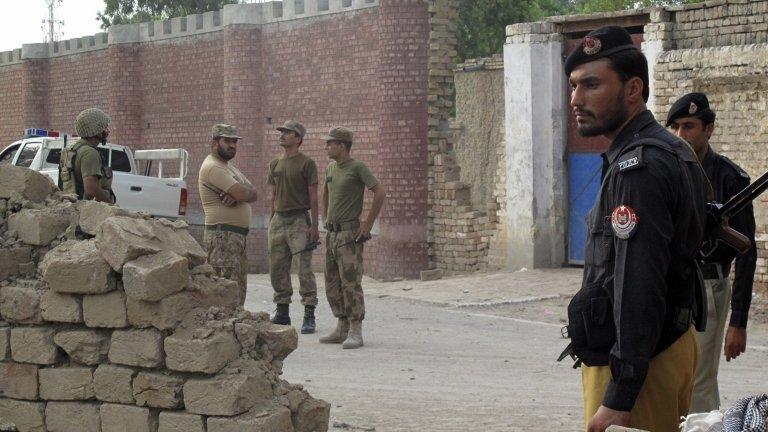US and UK pull staff out of Yemen amid terror alert
- Published
Footage shows US and UK expats arriving at Sanaa International Airport, as Frank Gardner reports
The US and UK governments have withdrawn diplomatic staff from Yemen and urged their citizens to leave amid concerns over security threats.
It follows the sudden closure of 20 US embassies and consulates on Sunday.
This was prompted by intercepted conversations between two senior al-Qaeda figures, including top leader Ayman al-Zawahiri, US media said.
The Pentagon said the US Air Force was flying workers out of the capital, Sanaa, on Tuesday morning.
A global travel alert, external said: "The US Department of State warns US citizens of the high security threat level in Yemen due to terrorist activities and civil unrest.
"The department urges US citizens to defer travel to Yemen and those US citizens currently living in Yemen to depart immediately."
It added that "the security threat level in Yemen is extremely high".
It comes hours after a drone strike killed four suspected al-Qaeda militants in the country overnight, a senior US official has confirmed to the BBC.
In a separate incident, tribesmen say they have shot down a Yemeni military helicopter, killing at least six troops.
The BBC's Abdullah Ghorab, in Sanaa, says the Yemeni capital has been experiencing unprecedented security measures, with hundreds of armoured vehicles deployed.
Our correspondent says a security source confirmed that Yemeni intelligence services had discovered that dozens of al-Qaeda members had arrived in Sanaa over the past few days in preparation for the implementation of a large plot.
The source described the plot as dangerous, and suggested it was to include explosions and suicide attacks aimed at Western diplomatic missions and Yemeni military headquarters.
A source in the Yemeni air force has told the BBC that Yemeni war planes have made regular flights to monitor movements of cells believed to belong to al-Qaeda in the areas of Shaouan and Thahban in Sanaa.
Jail breaks
Both the White House and the US state department have said the current threat comes from al-Qaeda in the Arabian Peninsula (AQAP), but have refused to divulge further details.
According to the New York Times, external, the US intercepted communications between Zawahiri and the group's head in Yemen, Nasser al-Wuhayshi.
The paper said the conversation represented one of the most serious plots since the 9/11 attacks.
Washington earlier said the closures in North Africa and the Middle East were "out of an abundance of caution".
A number of US diplomatic posts in the region - including in Sanaa - will remain closed until Saturday.
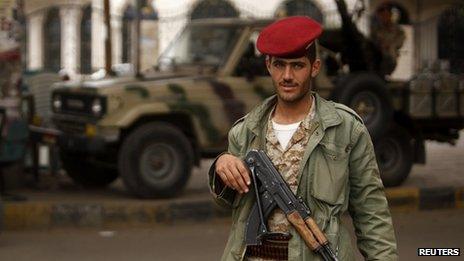
The United States has ordered its non-essential embassy staff to leave Yemen immediately and has urged other American nationals to follow them.
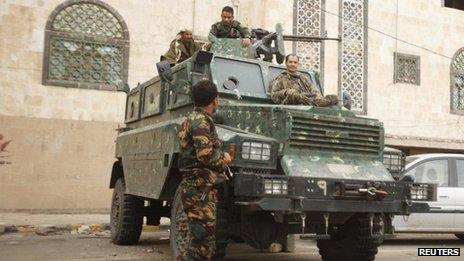
The alert was issued by the state department which said there was a high-level threat in Yemen due to terrorist activities.
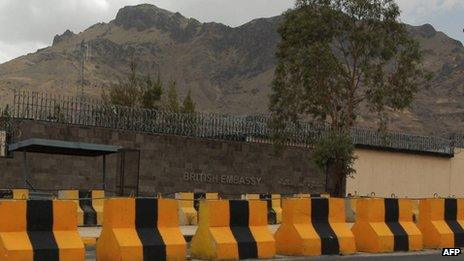
The UK says it has also temporarily withdrawn all staff from its embassy in Yemen, and the embassy will remain closed until they are able to return.
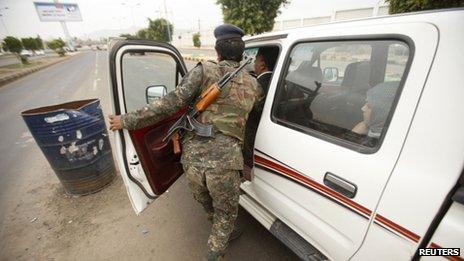
Media reports, quoting conversations intercepted by US intelligence, said no targets were singled out but an attack was said to be imminent.

The conversations were believed to have taken place between al-Qaeda leader Ayman al-Zawahiri, and the head of its Yemeni offshoot, Nasser al-Wuhayshi.
In a statement on its website, external, the UK Foreign Office said: "Due to increased security concerns, all staff in the British embassy have been temporarily withdrawn and the embassy will remain closed until staff are able to return."
It advises against all travel to the country.
Several European countries have also temporarily shut missions in Yemen.
Officials have advised particular vigilance during the festival period surrounding Eid - the end of the Muslim holy month of Ramadan - warning that "tensions could be heightened". Eid will begin on Wednesday or Thursday, depending on the sighting of the new moon.
Meanwhile, Interpol issued a separate global security alert at the weekend, citing jail breaks linked to al-Qaeda in nine countries.
The international policing organisation said "hundreds of terrorists" had been freed during breakouts in countries including Iraq, Libya and Pakistan in the past month.
A US state department global travel alert, external, issued last week, is also in force until the end of August.
AQAP, the Yemeni branch of al-Qaeda, has also been blamed for the foiled Christmas Day 2009 effort to bomb an airliner over Detroit and for explosives-laden parcels that were intercepted the following year aboard cargo flights.
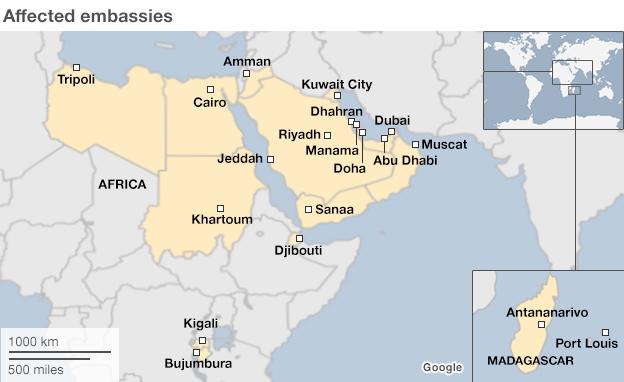
- Published6 August 2013
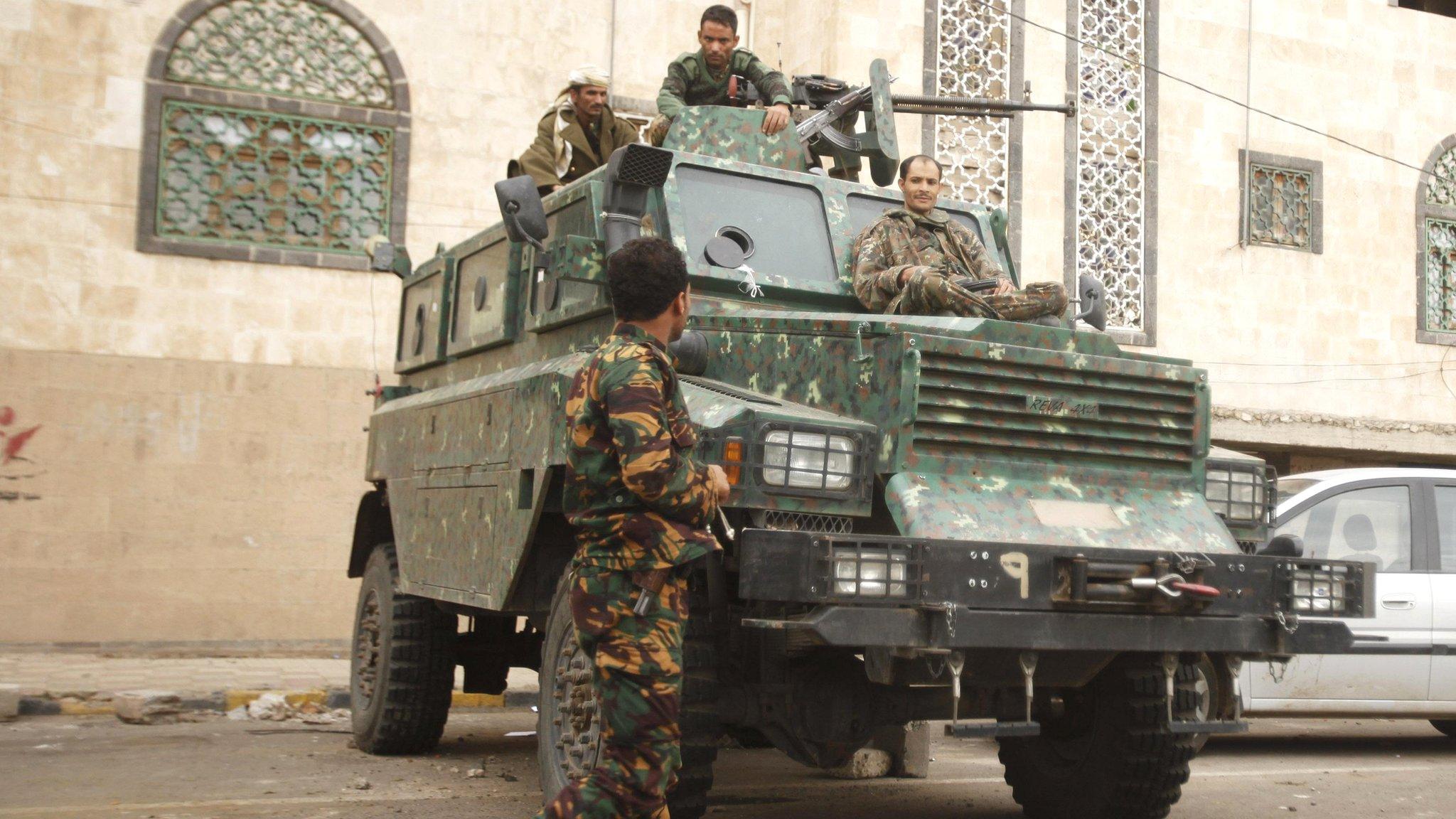
- Published6 August 2013
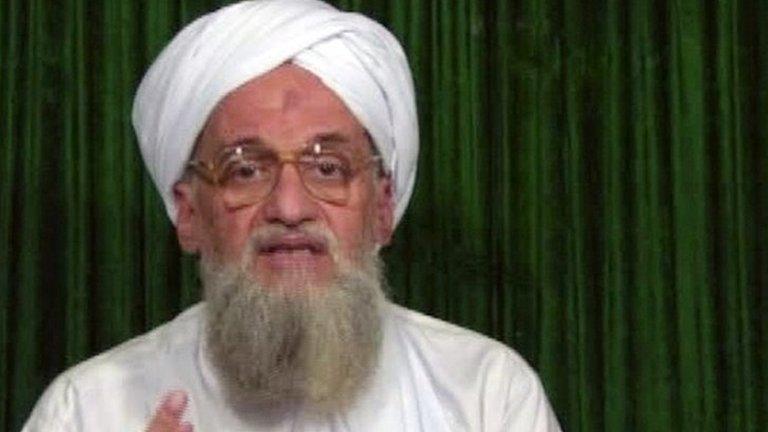
- Published16 June 2015
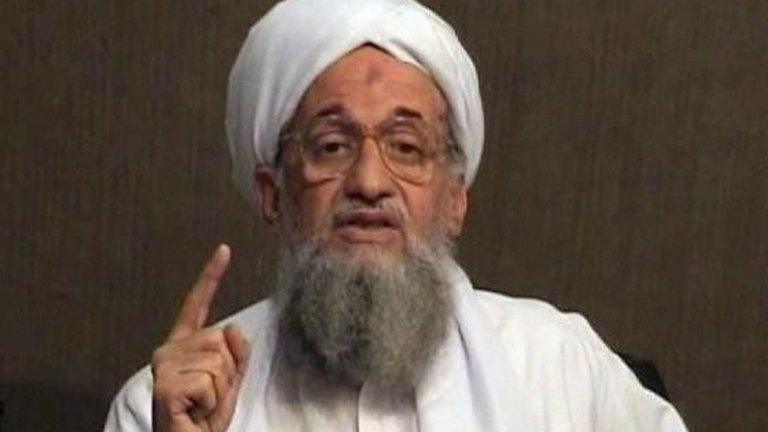
- Published5 August 2013
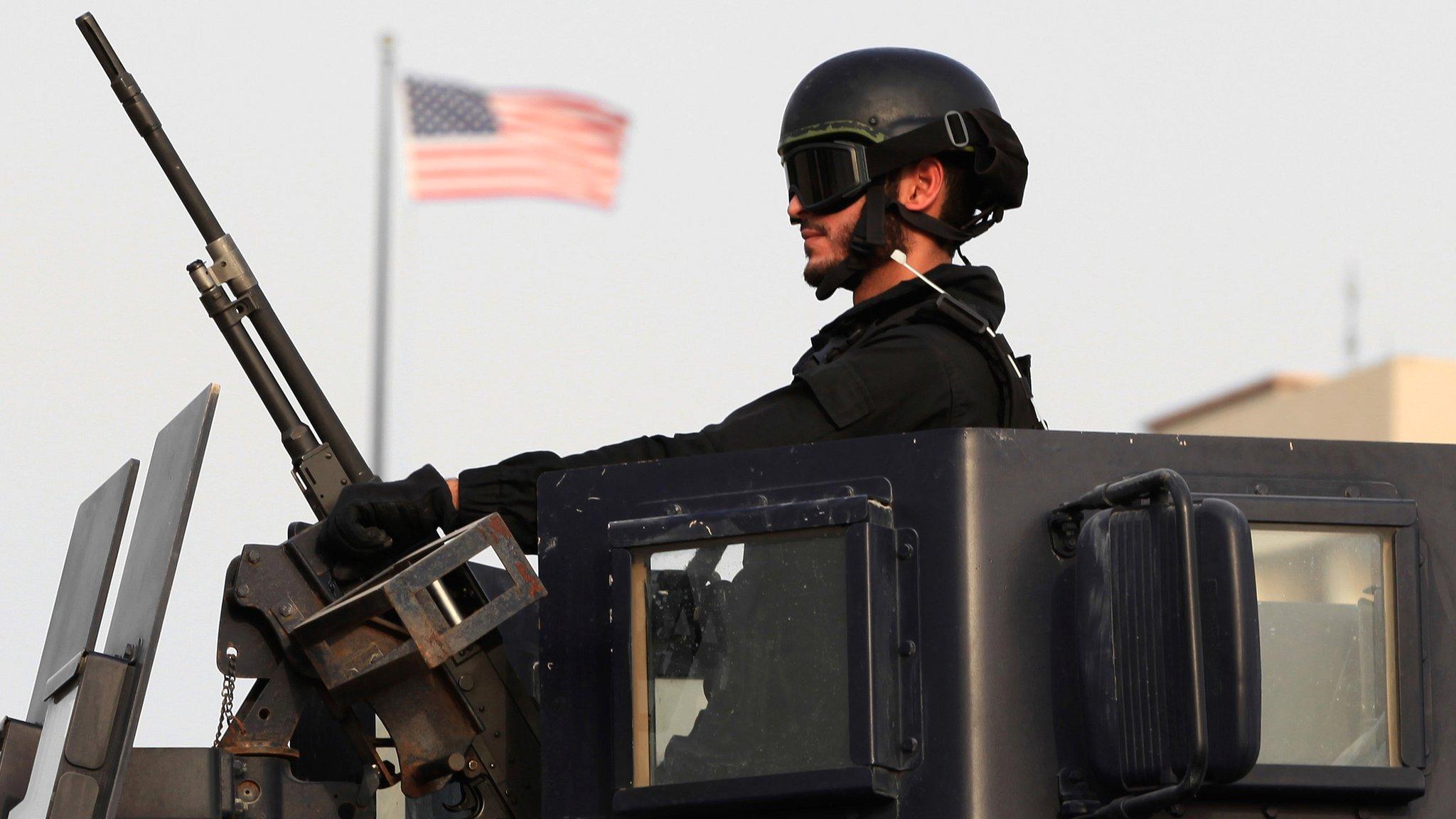
- Published3 August 2013
